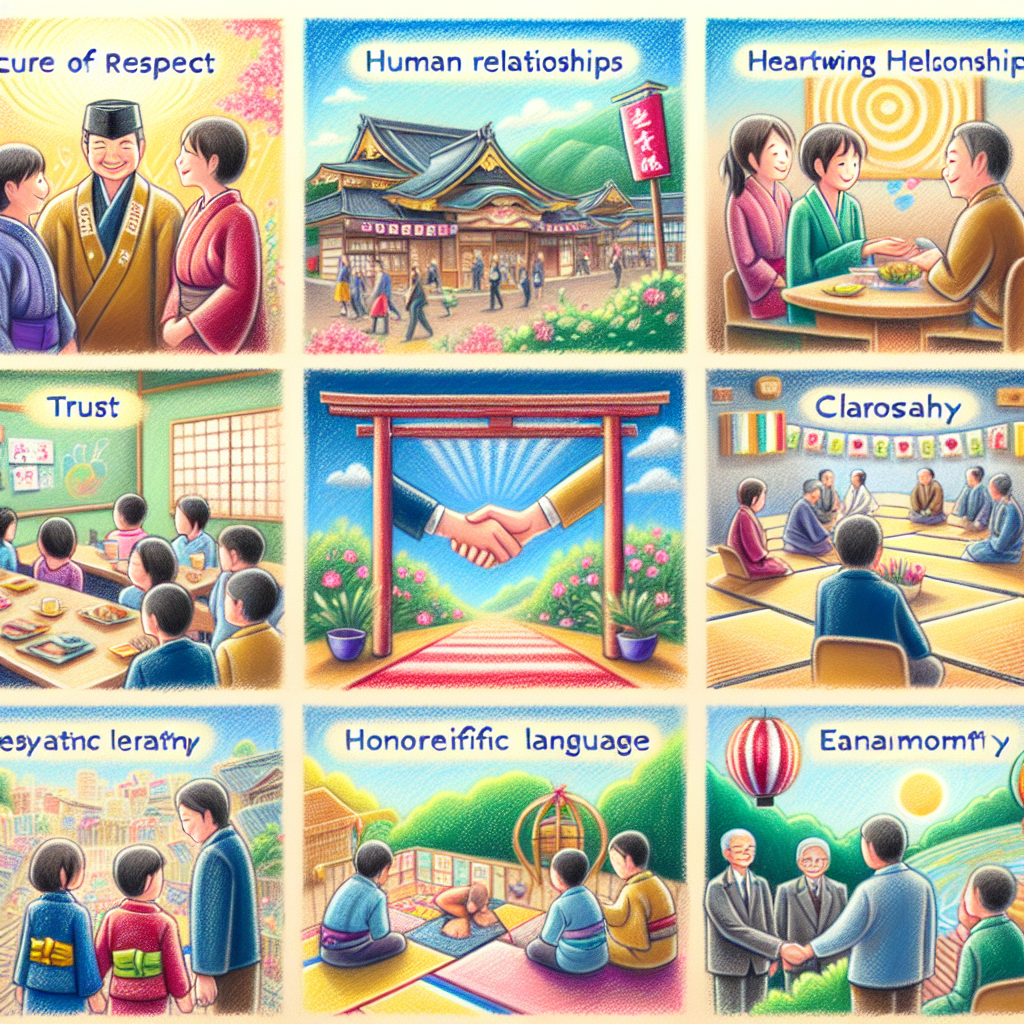The Depth of Human Relationships Fostered by Japanese Culture of Respect
Japan is renowned for its emphasis on respect, a quality deeply embedded in every facet of Japanese society. This culture of politeness and manners serves not only as a means of showing consideration and respect for others, but it also acts as a foundation for deepening human relationships. It is through this cultural backdrop that Japanese people develop strong connections and foster mutual understanding. This article explores the depth of human relationships that stem from a culture of respect.
Trust Cultivated by Respect
Trust is a cornerstone of any human relationship. In Japan’s culture of respect, showing consideration and kindness to others forms the bedrock of trust. For instance, even the most basic greetings and gestures in initial encounters require careful attention. This meticulousness allows individuals to feel valued, facilitating the building of mutual trust.
Expressions of respect, such as bowing and the use of honorific language, are fundamental elements of this culture. These practices clearly demonstrate regard for others and are adapted based on the person’s status, age, and relationship. Such behaviors not only convey personal feelings but also play an essential role in bridging emotional distances.
Community Bonds Strengthened by Respect
The culture of respect plays a vital role in Japanese communities. Festivals and local events create opportunities for residents to connect with one another. In these settings, a foundation of consideration ensures that politeness reinforces the bonds among attendees. The inclination toward mutual assistance and support enhances the unity of the community.
In educational settings, emphasizing respect leads to improved relationships among students. Even in environments where competition is fierce, ingrained politeness fosters a culture of respect and empathy. Such educational principles continue to manifest beneficially in professional contexts, where trust built on respect becomes an asset in business interactions.
The Harmony of Relationships in the Workplace
In the workplace, respect is equally crucial. The corporate culture in Japan expects politeness in relationships between superiors and subordinates, as well as among peers. In business contexts, greetings, expressions of gratitude, and the proper use of honorifics significantly shape the atmosphere within the office.
A workplace where respect thrives enhances employee motivation and streamlines communication. When everyone can work in a pleasant environment, it propels teamwork and collaboration. Furthermore, polite interactions with clients become essential for establishing trust, contributing to overall organizational success.
Conclusion
Japan’s culture of respect plays a significant role in cultivating deep human relationships. By facilitating trust-building, strengthening community bonds, and fostering office harmony, a richer tapestry of relationships forms. As society continues to cherish and pass down this culture, it is anticipated that Japan will evolve into an even more harmonious and collaborative environment. By embracing and practicing this unique cultural tradition, individuals can also forge deeper connections with others.


